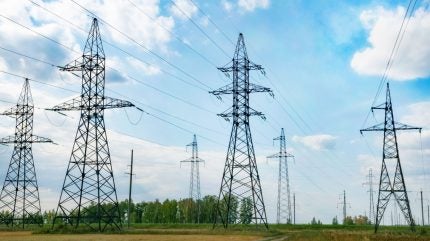
Germany’s decision to implement a selective reduction in electricity taxes for various sectors, including energy, retail and industrial, has sparked concerns among industry stakeholders.
The proposed cuts, aimed at easing financial pressures, have been met with criticism over potential market distortions and limited scope, as reported by Reuters.

Discover B2B Marketing That Performs
Combine business intelligence and editorial excellence to reach engaged professionals across 36 leading media platforms.
Germany has some of the world’s highest electricity prices, ranking fifth globally in the first quarter of 2025 at an average 38 euro cents per kilowatt-hour.
The German government agreed to lower the electricity tax to the European minimum for all consumers in the early part of the year.
However, a recent budget framework from the Finance Ministry limits these reductions to industries such as agriculture and forestry while excluding many other businesses due to fiscal constraints.
Handelsverband Deutschland trade association head Alexander von Preen stated: “With such a breach of the coalition agreement, the government is squandering the trust of the trade and tearing the rug out from under companies.”

US Tariffs are shifting - will you react or anticipate?
Don’t let policy changes catch you off guard. Stay proactive with real-time data and expert analysis.
By GlobalDataThe move has led to disputes between members of the ruling coalition — the SPD-led finance ministry and conservative CDU/CSU – marking one of their first major disagreements.
CDU/CSU parliamentary group deputy leader Sepp Mueller stated: “Reducing electricity costs for everyone remains the party’s goal. We now need to quickly discuss when we can implement this.”
The Deutscher Industrie und Handelskammertag (DIHK, the Chamber of Industry and Commerce) describes the targeted cuts as disappointing given previous promises by the government for broader relief measures.
DIHK president Peter Adrian stated: “No one understands why, despite the planned record debt, this already quite small but very important relief should not be possible.”
Utilities lobby the Bundesverband der Energie und Wasserwirtschaft has raised alarms about potential market distortions and negative impacts on renewable energy growth.
The national Bundesverband der Deutschen Industrie (industry association) has also criticised the measure’s narrow focus and numerous restrictions, which it believes will not sufficiently lower prices to be competitive internationally.
The Zentralverband des Deutschen Handwerks (Central Association of Skilled Crafts) has highlighted concerns that an industrial-focused price reduction would unfairly disadvantage small and medium-sized craft businesses which would indirectly subsidise this relief through their contributions.
Economy Minister Katherina Reiche has announced that Germany would develop a detailed concept for industrial electricity pricing following new EU state aid guidelines permitting such subsidies.
In April 2025, a report by the European Network of Transmission System Operators for Electricity proposed that Germany should consider splitting its electricity market into five distinct price zones to better reflect differing regional costs.
The existing unified power market zone, which includes Luxembourg, is experiencing grid congestion and imbalances in the distribution of renewable energy, resulting in the recommendation.





